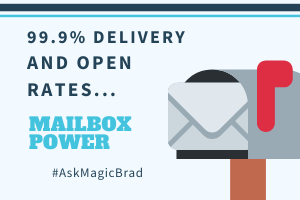Event professionals get real about their biggest spending regrets—along with the key things that are always worth the money.
When you’re dealing with a limited event budget, it can be hard to know how to spend it. Is that branded swag worth it? What about that gorgeous floral display, or printed show guides? And do you really need a high-end photographer?
While every event’s priorities are different, of course, we asked a variety of event professionals around the world to share their biggest budget regrets—along with the items they will always find the cash for. Here’s what they had to say…
SKIP IT: Overly Branded Swag
Sure, attendees still want swag—as long as it’s useful. Avoid wasting your budget on low-quality items that will end up in the trash, advise our experts.
“One line item I regret having in a budget was swag for a well-known, luxury brand automotive manufacturer,” remembers Greg Jenkins, a partner at Bravo Productions in Long Beach, Calif. “While at the time, the swag included what we and the client perceived as things of value, they were probably either thrown away or given to assistants and interns, children, and grandchildren. None of this provided the client with any return on their investment.”
Felicity Cator, who specializes in sustainable event management for England-based company Legacy Events, recalls a similar moment from early in her career. “I’ve made the classic error of over-purchasing on low-quality event branding materials and swag bag items that were branded with the event dates,” she says. “[I had a] face palm-moment the following year on the same project when I couldn’t repurpose anything and had to throw them away, which I felt awful about. Most of it wasn’t recyclable, either.”
SPEND IT: High-Quality, Reusable Items
Instead, focus on high-quality, reusable, and sustainable swag that attendees will actually want to keep, advises Cator—and be sure there are no event dates in sight. Once she shifted to those types of items, “I was able to reuse and massively reduce my branding budget for the following year’s event,” she explains.
SKIP IT: Printed Invites and Other Event Materials
Although there’s a time and a place for printed materials, carefully think through whether printed collateral can instead be relegated to an app, advises Jumi Aluko, a Los Angeles-based event producer and consultant. “There is always so much left behind and wasted that it’s truly not worth it,” she says.
A similar idea applies to disposable items like name badges. “They’re necessary, but ‘good enough’ is [typically] OK for the length of a meeting,” argues Marla Everett, the director of consulting solutions for Event Travel Management, the events division of global travel management company Corporate Travel Management.
The same idea applies to invitations. If you do decide to send paper invites, think through whether the most high-end, expensive options are necessary for what you’re trying to achieve. “I personally regret using the event budgets on pompous invitation cards,” says Srilakshmi Mahidhara, an India-based writer and event planner for the wellness company Yogic-Experience. “Honestly, I feel they are overkill, and I prefer keeping the invites simple and elegant. The invitations are usually forgotten in no time, and the budget spent on this could be used on something more memorable and fruitful.”
SPEND IT: High-End Photography and Videography
“On the other hand, I always wish I had a better bandwidth for photography, videography, photo booths, props, and other media highlights, as these are going to capture the best candid moments of the actual event,” Mahidhara adds. “These photos or video snippets can be cherished life-long and can also be an essential social media content strategy from the event organizer’s perspective.”
Kirsten McKinley, a wedding planner and the founder of the online magazine Weddings & Brides, observes a similar trend in the social-event world. “The one thing clients always wish they had spent more money on, if they didn’t prioritize it from the start, is a good photographer or videographer,” she says. “An event as big and as expensive as a wedding needs to be remembered and captured, and if the photographs and videos don’t end up being of professional quality, this can lead to a lot of regrets!”
SKIP IT: Unnecessary Decor
Meanwhile, McKinley finds that many clients end up regretting spending too much money on flowers or other decorative elements that don’t have an active role in the event. “They look pretty, yes, but there are other more important elements to spend money on,” she says.
SPEND IT: Extra Staffing and Day-Of Event Help
Having enough staff on hand is a crucial element of the guest experience. “I wish I allocated more to day-of-event help!” says Aluko. “There are always a million and one things to do from the time you get to the venue to set up that having those extra people to support all those tasks becomes incredibly vital. So whether that’s hiring production assistants or having a staffing agency hire for me, it’s definitely something I need to (and will!) spend more on.”
Everett agrees, noting that any components that support the event’s infrastructure—including staffing and a properly designed registration website—are crucial aspects of an event budget. “With supply chain and vendor staffing issues, the event staff can pitch in to ensure a smooth experience,” she says. “Similarly, event registration websites can help control other costs by planning for each attendee’s specific needs.”
SKIP IT: Celebrity Guests
Dominic Phillips, the founder and chief visionary officer of experiential marketing agency DPEM, regrets using a large position of the budget on celebrity guests, who often have formulaic presentations that aren’t customized to a specific audience.
“I prefer to spend money on a lesser-known source that has a compelling and relatable story to the audience,” he says. “As a result of the pandemic, audiences are more vocal about the value of their time and needs. Combined with greater distrust of celebrities, people want authentic connection versus a big name. There is not only a cost saving, but an increase in value.”
SPEND IT: Surprise Details That Wow Attendees
A buzzy alternative that is worth your budget? A good old-fashioned surprise and delight moment, says Kristen Sudyka, an event planner at Event Travel Management.
“My biggest thing is to have a memorable moment at an event/program/conference—something everyone will go home talking about. We want the food to be good and the centerpieces to be pretty, but it is always good to spend money on that memorable moment, something no one has seen before,” she says, citing options like a “champagne lady” in a champagne glass dress during the reception hour, acrobats during dinner, or an illusionist during a session. “Something tailored to that organization that will give the meeting buzz on-site and after.”
Meanwhile, Jordan Kaye—the owner of Analog Events & Marketing in Los Angeles—likes spending money on custom scenic elements. “We love to bring in one-of-a-kind pieces that really wow an attendee,” he says. “When they leave saying ‘holy sh*, that XXX (set recreation, photo backdrop, lifesize prop, custom tent buildout, etc) was incredible’ and post a photo or video—that’s a win for all of us.”
SKIP IT: Expensive, Well-Known Venues
Venue choice is also an important area of consideration—and traditional or big-name venues aren’t always the best option, argues Phillips. “They come with many hidden costs that take away from creative and custom decor, signage, or entertainment,” he says.
SPEND IT: Unconventional Spaces That Will Leave a Lasting Impression
Phillips’ favorite alternative? “Save money by choosing a warehouse or park over a convention center and invest in decor that takes on the event’s vibe,” he suggests. “Our client, Airbnb, values its diversity of spaces, so events are set up in unique vignettes featuring non-traditional seating and display. It takes a lot of creativity, but it will always be a more memorable experience.”
SKIP IT: Too Much Food
Not having enough food is, of course, a kiss of death—but Rachel Russell, the field marketing manager for financial services app ONE, argues that you don’t always need the exact same amount of food as the number of attendees. “Especially when it comes to breakfast buffets and snacks,” she notes. “Late risers tend to miss breakfast, and not everyone needs a snack. There is almost always leftover food that goes to waste.”
Her advice? “Save budget by ordering lunch for the correct number of people, but expect less for breakfast and snacks.”
SPEND IT: High-Quality AV and Wi-Fi
But one area that’s always worth spending extra on is the AV budget, Russell adds. “Your team may not be happy with the high cost, but when the projector or microphone stops working and you didn’t pay extra to have tech experts on-site, your team will regret that decision,” she says.
And be sure to purchase Wi-Fi for your attendees, especially if it’s an all-day meeting, Russell says. “Yes, you want them paying attention to the presentation and not on their laptops, but you have to understand that urgent work-related tasks can come up, and your attendees won’t be happy if Wi-Fi isn’t available.”
SPEND IT: A Smooth Customer Experience, Both In-Person and Virtually
Ultimately, you can’t go wrong spending money on items that directly affect your attendees’ enjoyment of an event. “For attendees to be satisfied it’s a given that things must go smoothly for them,” says Mark Farrell, the CEO and founder of ProActuary.com, who organizes annual events for actuaries across the globe. “There should be no confusion on registering, and the friction involved in getting to your event should be as minimal as possible.”
To Farrell, spending money on systems that support the event are important. “For online events, this means having a great platform, a reliable and fast CRM, and delivery sitting on tech stacks that optimizes the attendee experience. We have never regretted allocating a budget that helps us achieve this.”
Maria Britton, the CEO of Trade Show Labs, adds that it’s important to spend a bit on virtual attendees if you’re doing a hybrid event. “For the first hybrid event I planned, I didn’t spend enough money on ensuring that remote attendees had an optimal experience,” she says. ”We set up screens, sent out links, and that was pretty much it. There ended up not being enough screens for the attendees to mingle well, and we struggled with internet connectivity issues. Since that event, we have made sure to spend more money on improving the experience for our virtual attendees.”
SOURCE: BizBash.com










